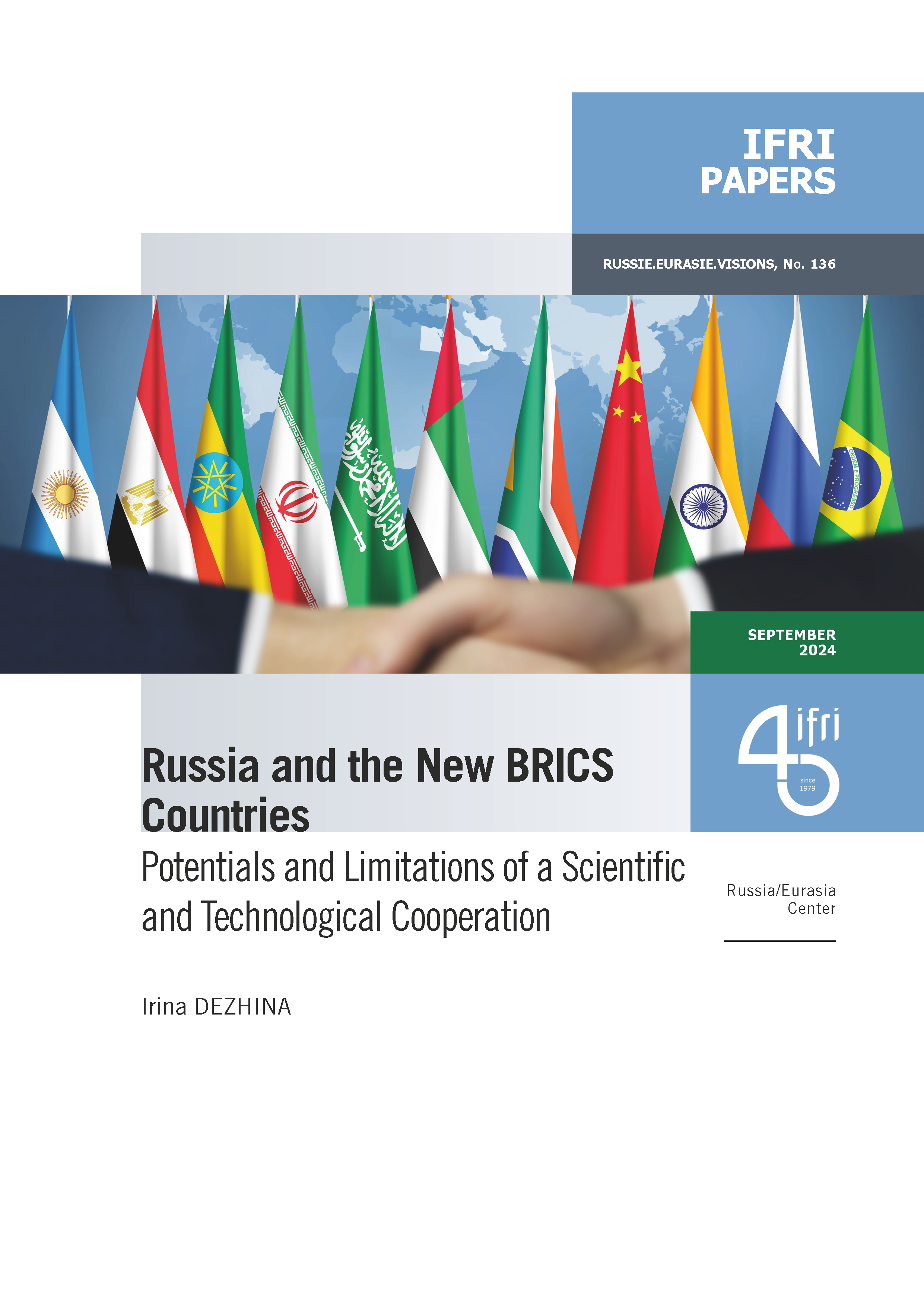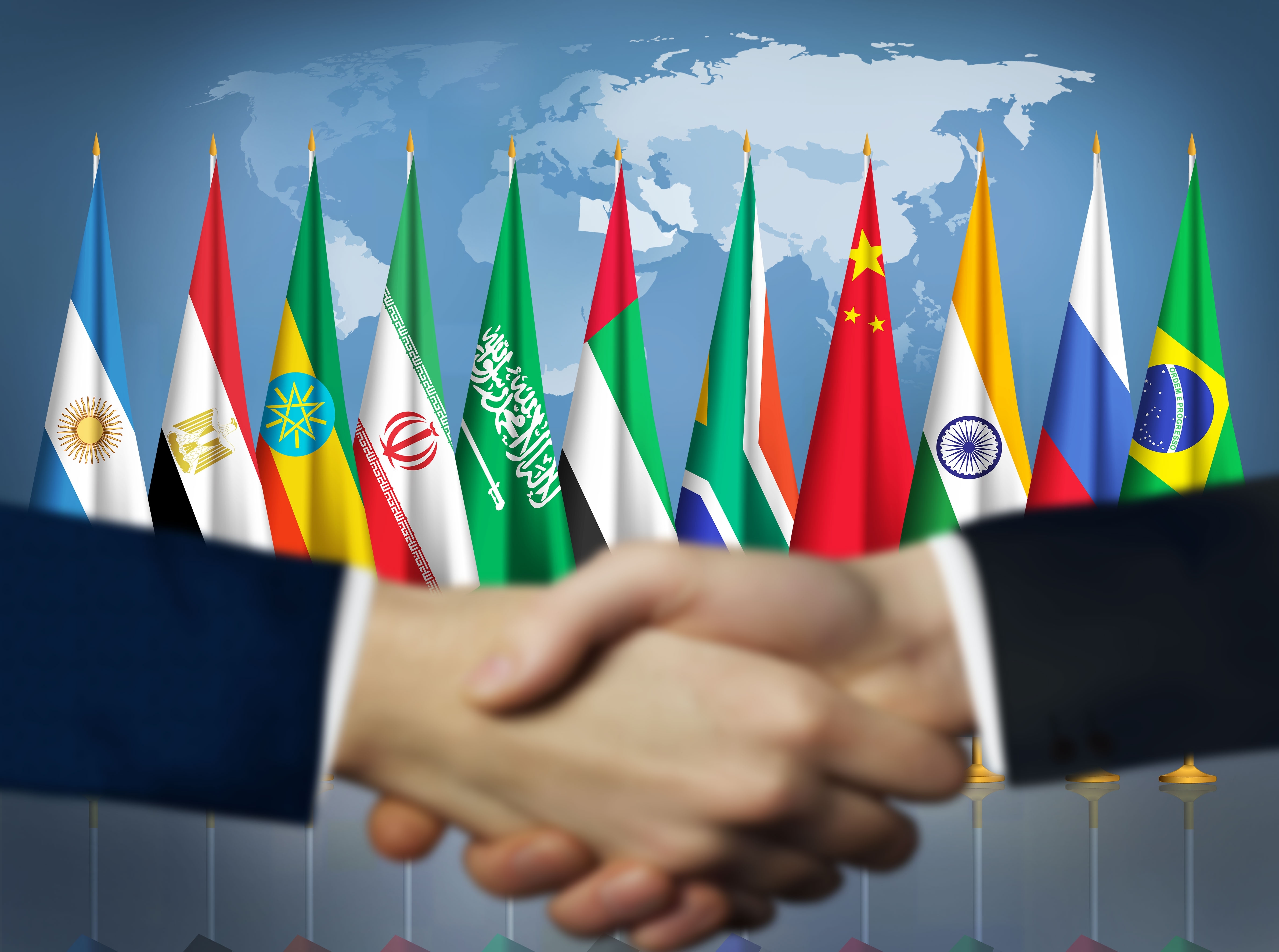Russia and the New BRICS Countries: Potentials and Limitations of a Scientific and Technological Cooperation

At the fifteenth BRICS summit, held in Johannesburg, South Africa, from August 22 to 24, 2023, a resolution was adopted to extend an invitation to six new countries to join the organization: Argentina, Egypt, Ethiopia, Iran, Saudi Arabia, and the United Arab Emirates (UAE). All of these countries except Argentina duly became members of BRICS in 2024, with the expanded group known as BRICS+. In addition to the political and economic advantages, it is assumed that the incorporation of these new countries could potentially facilitate their scientific and technological development.

From a legal and regulatory standpoint, however, BRICS is considered to be an informal forum, with no common rules or regulations. Indeed, studies of BRICS have identified regulatory inconsistencies as a problem in science and technology. Moreover, productive cooperation between the BRICS countries is being hampered by the use of different languages, divergent levels of funding, and a general diversity of interests in the sector. Although the group has now been in existence for 13 years, analysts are still emphasizing the need to select the most promising areas of priority research to be developed for the benefit of all BRICS countries while promoting educational and scientific mobility and boosting the research capacities of member states. It will be increasingly difficult to reconcile the various interests of the new countries, as they are more heterogeneous both in their levels of economic development and in their scientific and technological capacity. Nevertheless, the BRICS+ platform could serve as a catalyst for new “paired” links.
Irina Dezhina is a visiting scholar at Stanford University, USA, Center for Russian, East European and Eurasian Studies. She has over 30 years of research and consulting experience in science policy in post-Soviet Russia, Russian technology and innovation policy. She received her Ph.D. in Economics from the Institute of National Forecasting, Russian Academy of Sciences (1992), and her D.Sc. in Economics from the Institute of World Economy and International Relations, Russian Academy of Sciences (2007), Moscow, Russia.
Her recent publications include “Russia’s Science Policy, 2018-2022: Mixed Signals”, Social Sciences, 2023, 54(3), and “The Impact of Sanctions on Highly Productive Russian Scientists”, Sotsiologicheskie issledovaniya, 2023, 12 (co-authored with A. Nefedova).

Available in:
Themes and regions
ISBN / ISSN
Share
Download the full analysis
This page contains only a summary of our work. If you would like to have access to all the information from our research on the subject, you can download the full version in PDF format.
Russia and the New BRICS Countries: Potentials and Limitations of a Scientific and Technological Cooperation
Related centers and programs
Discover our other research centers and programsFind out more
Discover all our analysesRussia, the Palestinians and Gaza: Adjustments after October 7th
The Soviet Union (USSR), and subsequently the Russian Federation as its internationally recognized legal successor, has consistently sought to play a visible role in efforts to resolve the Israeli-Palestinian conflict.
Deathonomics: The Social, Political, and Economic Costs of War in Russia
The report attempts to outline and examine a truly new phenomenon in Russian society, dubbed “deathonomics”—the making of a mercenary army against the backdrop of the Kremlin’s war in Ukraine, eventually replacing both the Soviet (conscript) and early new Russian (contract) armies. It notes that, by the end of 2023, this trend had turned the military service into one of the highest-paying professions in the country, something not seen in Russia on such a scale since the late 17th century.
Russia's Asia Strategy: Bolstering the Eagle's Eastern Wing
Among Russia’s strategic priorities, Asia traditionally played a secondary role compared to the West. In the mid-1990s, then Foreign Minister Yevgeny Primakov initiated a rapprochement with China and India. Then, in 2014, deteriorating relations between Russia and the West prompted Moscow to begin its “great pivot to the East”.
Kazakhstan After the Double Shock of 2022: Political, Economic and Military Consequences
The year 2022 represented a dual shock for Kazakhstan. In January, the country faced its most severe political crisis since independence, followed in February by Russia’s full-scale invasion of Ukraine, which cast uncertainty over the borders of post-Soviet states. These consecutive crises profoundly shaped Kazakhstan’s domestic and foreign policy.










